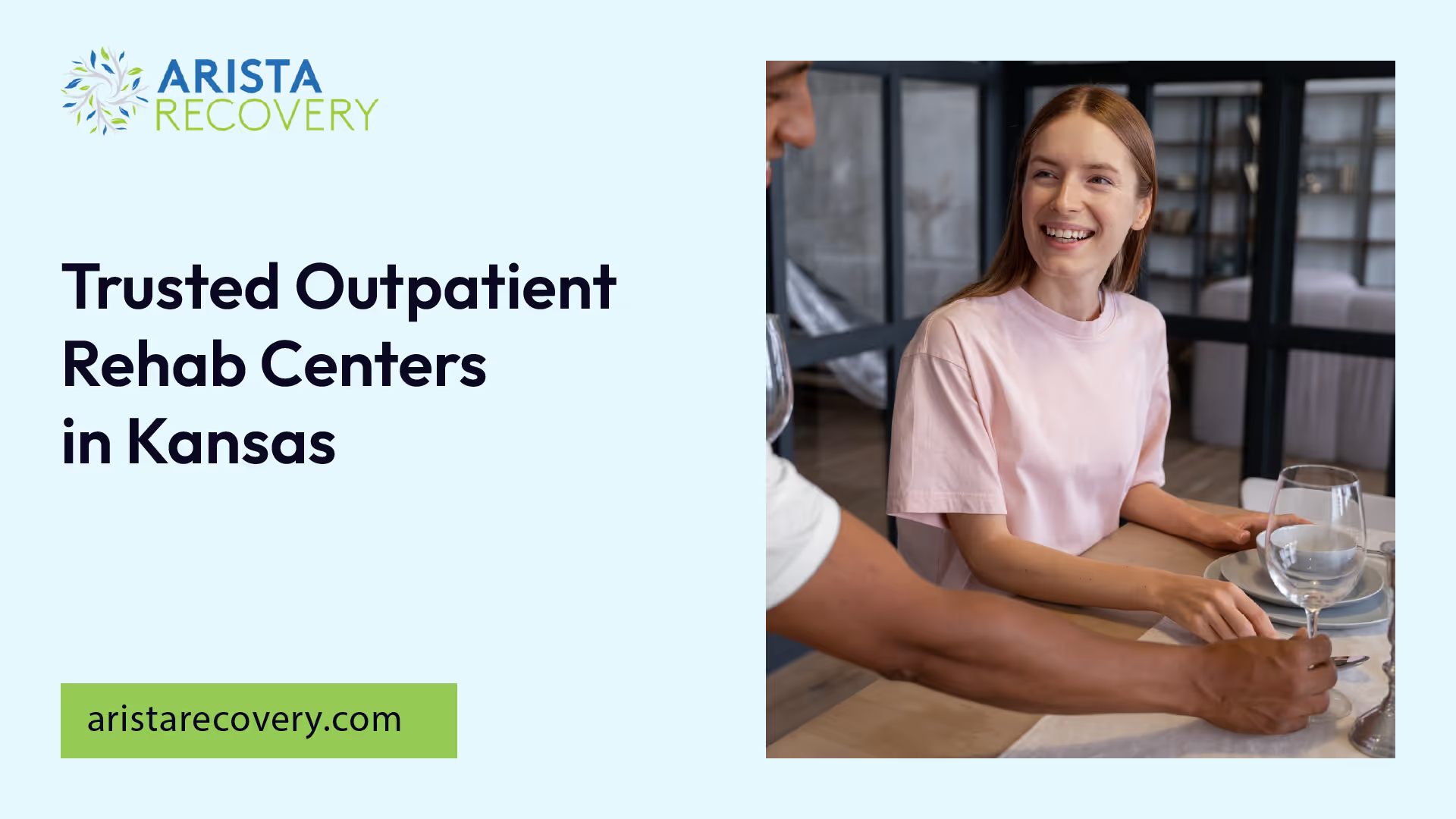Trusted Outpatient Rehab Centers in Kansas


Outpatient Rehab in Kansas
Outpatient rehab in Kansas provides essential support for individuals struggling with addiction while allowing them to maintain their daily responsibilities. This form of treatment is often more accessible and personalized, catering to the unique needs of each individual.
Addiction Treatment Centers Overview
As of 2015, Kansas had approximately 208 drug and alcohol addiction treatment centers offering various services including outpatient, residential, and hospital/inpatient care. These centers not only focus on addiction but may also provide support for issues such as domestic violence, HIV/AIDS, smoking cessation, and employment and housing assistance. Outpatient rehabilitation services deliver clinical support without requiring patients to reside in a facility, making it a flexible option for many seeking recovery.
Below is a summary of the types of care available in Kansas:
Type of CareDescriptionOutpatient TreatmentClinical services without facility admissionResidential TreatmentLive-in care providing intensive supportInpatient TreatmentHospital-based care for severe addiction situationsSupport ServicesAssistance for housing, employment, and health needs
For more detailed information, check our list of kansas drug rehab centers.
Cost of Outpatient Rehab
The cost of outpatient rehab varies widely based on several factors, including the individual's health insurance plan, the intensity of the treatment schedule, and the type of facility providing services. On average, drug rehabilitation costs approximately $13,475 per person.
Factors such as state-run rehab centers tend to be more affordable; however, they may come with longer waiting times and fewer treatment options than private facilities. Below is a breakdown of the average costs associated with outpatient rehab in Kansas:
Type of FacilityAverage CostState-run Centers$5,000 - $10,000Private Facilities$10,000 - $30,000
Outpatient treatment completion rates are relatively lower than those for inpatient programs. For example, outpatient treatment for opioid addiction has a 35% completion rate, whereas inpatient treatment completion rates may reach up to 65%. Understanding these dynamics can help individuals make informed decisions regarding their recovery journey.
For those considering more intensive options, exploring inpatient rehab kansas or specialized alcohol rehab centers kansas could be beneficial, depending on individual circumstances. Additionally, those seeking a more luxurious environment can consider luxury rehab centers kansas.
Types of Rehab Programs
Understanding the various types of rehab programs available is essential for individuals seeking treatment for addiction. This section outlines the differences between residential treatment centers and the comparison of outpatient versus inpatient treatment options.
Residential Treatment Centers
Residential treatment centers are live-in facilities designed to provide a structured environment for recovery. These programs can be short-term, lasting 3 to 6 weeks, or long-term, extending from 6 to 12 months. They are particularly effective for individuals with severe addiction issues who need continuous support and supervision. Residential facilities differ from inpatient services, which are typically provided within hospitals.
Program TypeDurationEnvironmentShort-Term Residential3 to 6 weeksLive-in facilityLong-Term Residential6 to 12 monthsLive-in facility
Residential treatment centers often incorporate various therapeutic modalities, including individual, group, and family therapy. These centers aim to create a supportive community that fosters recovery, free from the triggers and stresses that individuals may face in their daily lives.
Outpatient vs. Inpatient Treatment
The difference between outpatient and inpatient treatment centers is significant. Outpatient rehab typically allows individuals to receive treatment while living at home, which provides flexibility to maintain work and family commitments. In contrast, inpatient programs require individuals to stay at the facility for the duration of treatment.
AttributeOutpatient TreatmentInpatient TreatmentLiving SituationRemains at homeLive-in facilityCostGenerally less expensiveTypically more expensive due to higher level of careFlexibilityAllows for family and work involvementProvides round-the-clock care and supervisionProgram StructureIntensive outpatient programs often involve 3 hours of therapy a day, 3-5 days a week.Structured daily routines with comprehensive care
While outpatient rehabilitation tends to be less costly due to fewer medical and psychotherapy services, it is important for individuals to choose the treatment option that best meets their personal needs rather than making a decision based solely on financial considerations [1].
Longer durations of treatment have been shown to improve outcomes, as highlighted by the National Institute on Drug Abuse. Whether opting for kansas drug rehab centers or alcohol rehab centers kansas, understanding the nuances of each program type will guide individuals toward a more tailored approach to their recovery journey.
Effectiveness of Outpatient Rehab
Outpatient rehab programs offer flexibility and practicality for individuals seeking treatment for addiction. Understanding the effectiveness of these programs is vital for those considering outpatient rehab in Kansas.
Completion Rates
Completion rates for outpatient rehab programs are a crucial indicator of their effectiveness. Less than 43% of individuals who enter treatment for drug and alcohol use actually complete their program [2]. Factors influencing these rates include the level of support, program structure, and individual circumstances.
YearPercentage of Non-Completion202395% of those needing drug rehab did not receive it202245% completion rate overall
Individuals engaging in structured and supportive environments are more likely to complete their rehab programs. While outpatient settings can be effective, success often hinges on external factors, including community and family support.
Treatment Customization
Treatment customization plays a vital role in the success of outpatient rehab programs. Evidence suggests that successful treatment requires continual evaluations and modifications tailored to each individual's unique needs [2]. This includes assessing the individual's progress, challenges, and any co-occurring disorders such as anxiety or depression that may complicate recovery [3].
Customized treatment plans often incorporate evidence-based therapies and medications, enabling healthcare providers to address specific areas for improvement effectively. The National Institute on Drug Abuse emphasizes that most individuals require at least 90 days of treatment for a successful recovery.
ComponentImportanceEvidence-based therapiesEssential for addressing underlying issuesDual diagnosis treatmentIncreases chances of recoveryOngoing assessmentsAllows for tailored modifications
In blending these elements, outpatient rehab programs can significantly enhance the likelihood of recovery for individuals grappling with addiction. For more information on different types of rehab programs, check our sections on inpatient rehab Kansas and alcohol rehab centers Kansas.
Factors Affecting Rehab Success
Understanding the factors that influence the success of outpatient rehab is essential for individuals seeking recovery. Two critical elements include dual diagnosis treatment and the length of treatment.
Dual Diagnosis Treatment
Dual diagnosis treatment is vital for individuals facing addiction alongside co-occurring mental health disorders, such as anxiety or depression. This integrated approach addresses both addiction and mental health issues simultaneously, leading to better recovery outcomes. Without properly addressing these underlying mental health conditions, individuals may struggle to maintain sobriety.
Co-occurring DisorderImpact on RecoveryAnxietyIncreases likelihood of relapse if untreatedDepressionCan hinder motivation, complicating the recovery process
Length of Treatment
The duration of treatment plays a significant role in the overall effectiveness of rehab programs. Research indicates that most individuals require at least 90 days of structured treatment to achieve successful recovery outcomes [3]. Programs shorter than this time frame may yield limited results.
Effective treatment typically consists of a high level of care initially, transitioning into less intensive programs as individuals progress. Supportive post-treatment strategies, including a solid game plan for maintaining a sober lifestyle, are crucial for long-term success. These plans should include a network of support from family, friends, treatment alumni, and mentors.
Length of TreatmentEffectiveness LevelLess than 30 daysLimited effectiveness30-89 daysModerate effectiveness90 days or moreHigh effectiveness
Individuals seeking outpatient rehab in Kansas should consider these factors when evaluating treatment options. These elements are fundamental to ensuring the best chances for a successful recovery. For additional resources, explore kansas drug rehab centers and alcohol rehab centers kansas.
Intensive Outpatient Programs (IOPs)
Intensive Outpatient Programs (IOPs) serve as an essential treatment option for individuals seeking support for addiction challenges. These programs offer a level of care that is more robust than traditional outpatient therapy yet less restrictive compared to residential treatment programs.
IOPs in Kansas
In Kansas, IOPs are structured to provide several hours of treatment daily, several days a week, and can last from a few weeks to a few months. This flexibility allows individuals to receive essential treatment while accommodating personal responsibilities such as work, school, or family commitments.
Program FeatureDescriptionTreatment HoursSeveral hours dailyFrequencySeveral days per weekDurationA few weeks to a few months
IOPs often encompass a wide array of therapeutic approaches. These can include cognitive behavioral therapy (CBT), dialectical behavioral therapy (DBT), eye movement therapy (EMDR), group therapy, and family therapy. This variety ensures that programs can cater to individual needs while helping clients manage daily responsibilities, recognize triggers, prevent relapse, and address any co-occurring disorders.
Benefits of IOPs
One of the primary selling points of IOPs is their cost-effectiveness. Compared to residential programs, which often have higher expenses due to room and board costs, IOPs generally offer an intensive level of care at a fraction of the price. Many facilities also accept insurance to help cover expenses, making treatment more accessible for individuals.
BenefitDescriptionCost-EffectiveMore affordable than residential programsInsurance AcceptanceMany programs accept insuranceFlexible SchedulingAllows treatment alongside personal commitments
IOPs provide individuals with the support they need to transition back into their everyday lives while continuing their recovery journey. Patients learn essential coping skills and strategies to handle life's challenges, making it a valuable option for those looking to maintain their independence while receiving high-quality care. For further insight into the types of facilities available in the state, consider exploring kansas drug rehab centers and other specialized options like alcohol rehab centers kansas.
Outpatient Treatment Considerations
When considering outpatient rehab options in Kansas, two significant factors stand out: outpatient detox programs and the role of social support in treatment. Both aspects play a crucial role in ensuring that individuals receive comprehensive care tailored to their needs.
Outpatient Detox Programs
Outpatient detox programs are designed for patients experiencing mild to moderate withdrawal symptoms. This approach is safe and effective, providing the necessary flexibility that many individuals need during recovery. Clinicians administer medications on-site to soothe withdrawal symptoms, ensuring patient comfort throughout the detoxification process. This model allows individuals to receive care while managing their daily responsibilities [1].
Program TypeSuitable ForKey FeaturesOutpatient DetoxMild to moderate withdrawalOn-site medication administration, flexibility to maintain daily activities.
Outpatient detox programs serve as an essential gateway into broader outpatient rehab initiatives, enabling participants to transition smoothly into ongoing treatment as they stabilize.
Social Support in Outpatient Care
Social support plays a pivotal role in successful outpatient rehab. This support can come from various sources, including family, friends, and peer groups. Outpatient treatment often incorporates elements like Twelve-step programs such as Alcoholics Anonymous (AA) and Narcotics Anonymous (NA), which have proven effective in helping individuals maintain sobriety during their recovery journey [1].
Outpatient services typically allow individuals to remain at home, continue working, and stay closely connected to their support systems. Here are several benefits associated with social support in outpatient care:
Support ElementBenefitFamily and FriendsProvides emotional support and encouragement.Peer Groups (AA, NA)Offers a sense of community and shared experiences.Maintaining RoutineHelps to establish a stable environment during treatment.
Outpatient treatment programs in Kansas, including intensive outpatient services, focus on relapse prevention and psychoeducation, enhancing recovery efforts by fostering a robust support network [5].
Understanding these outpatient treatment considerations can help individuals make informed decisions regarding their path to recovery. For further information on available options, including inpatient services and specialized centers, visit sections on kansas drug rehab centers and alcohol rehab centers in Kansas.
References
[2]:
[3]:
[4]:
[5]:
You’re not alone in this.
When mental health challenges and addiction intersect, it can feel isolating. At Arista, we offer compassionate, evidence-based, and trauma-informed care to help you heal, grow, and move forward.
You’re not alone in this.
When mental health challenges and addiction intersect, it can feel isolating. At Arista, we offer compassionate, evidence-based, and trauma-informed care to help you heal, grow, and move forward.
Support that moves with you.
You’ve taken a brave first step. At Arista Recovery, we’re here to help you continue with best-in-class care designed for long-term healing and support.
.webp)






